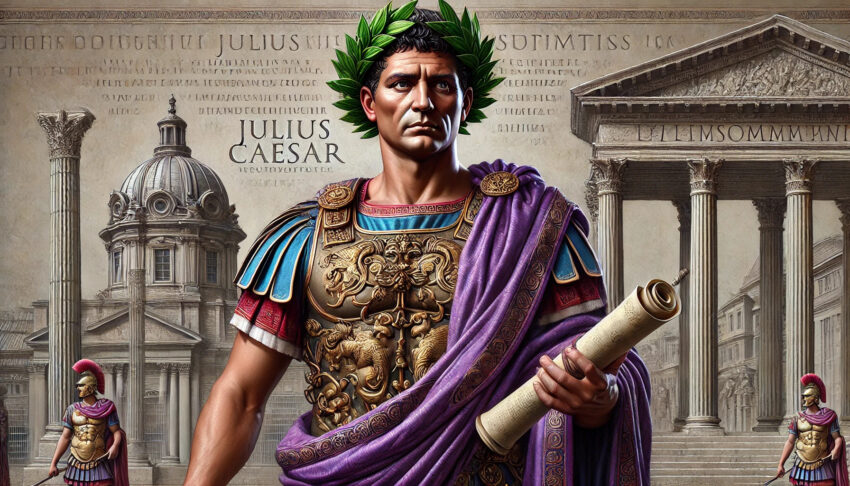Caesar Introduces the Julian calendar, a more accurate solar-based calendar that replaces the old Roman lunar calendar
Julius Caesar, recognizing the shortcomings of the Roman lunar calendar, initiated a significant reform in 46 BC to create a more accurate and consistent timekeeping system. The old calendar had fallen out of sync with the seasons due to its reliance on lunar cycles and the occasional addition of extra months by Roman priests, often for political reasons.
To develop a new calendar, Caesar consulted the Alexandrian astronomer Sosigenes, who recommended adopting a solar-based system similar to the Egyptian calendar. This led to the creation of the Julian calendar, which divided the year into 365 days with an extra day added every four years—a leap year—to account for the approximately 365.25-day solar year.
The months were reorganized and standardized in length: most months had 30 or 31 days, while February had 28 days and gained an extra day during leap years. To correct the misalignment caused by the old calendar, the year 46 BC was extended to 445 days, earning it the nickname “the Year of Confusion.”
The implementation of the Julian calendar had profound effects on Roman society. It improved agricultural planning by aligning the calendar with the seasonal cycle, which was crucial for planting and harvesting crops. It also enhanced civil administration by providing a consistent framework for legal and governmental activities.
The Julian calendar remained the standard in the Western world for over 1,600 years until it was refined into the Gregorian calendar in 1582. Caesar’s calendar reform was a monumental achievement that showcased his vision for unifying and strengthening the Roman Empire through practical and lasting changes.
 |
 |
 |


